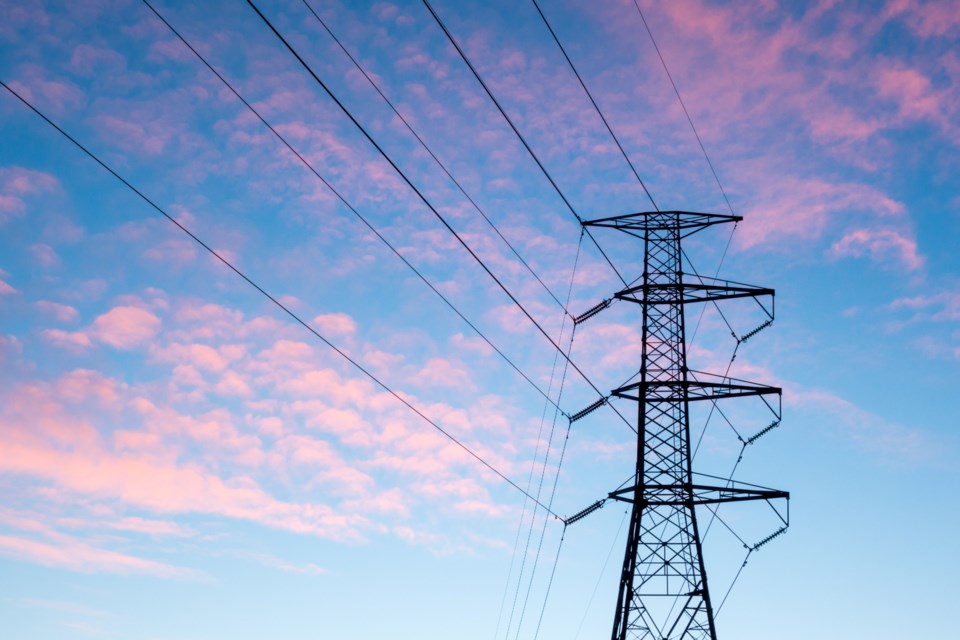THUNDER BAY — Over the continuing objections of some property-owners, Hydro One is moving steadily forward with plans for a new 360-kilometre high-voltage transmission line between Thunder Bay, Atikokan, and Dryden.
If all approvals come in on time, construction will start before the end of the year.
The project is a 50/50 joint venture between the utility and nine First Nations.
Last month the Ontario Energy Board approved Hydro's application for leave to erect the transmission line at an estimated cost of $1.2 billion.
The board also said the route selected by the utility is "preferable" to other routes, including alternatives suggested by the Kaministiquia-area landowners' group Neighbours On The Line.
The OEB noted that "other intervenor considerations affecting the route selection are expected to be addressed through the Environmental Assessment process."
Neighours On The Line have presented other route options including one to the north that would bypass the Kam area but continue to Atikokan, and another that would follow Highway 17 to Dryden, bypassing Atikokan altogether.
The landowners group maintains there is no technical reason for the line to go to Atikokan, and that a direct route to Dryden would cut construction costs by $200 million.
Spokesperson Robin Sadko told TBnewswatch that Hydro One "took a few weeks to look at it, but they decided their route is better, and they can't tell us why it has to go to Atikokan.
"We've learned that the Atikokan plant [a transformer station] is in disrepair, and we wonder if they want to include the cost to repair that in this big project . . . They won't answer that question."
But in an interview Wednesday, Hydro One vice-president Sonny Karunakaran said it's actually Ontario's Independent Electricity System Operator that determined the need for a transmission line to Atikokan and on to Dryden.
"We developed the project to meet that functional need, and the determination from the Ontario Energy Board which approved construction is a test of the need. They agree with the IESO on the need for this project."
Environmental assessment for the power line is still underway, but the province's environment ministry is expected to deliver a decision "in the short term," Karunakran said.
Sadko maintains Hydro One has provided false information to residents by stating the power line is a "done deal," so they should sell their property to accommodate the project or sign an easement agreement.
Saying "there is a total lack of transparency and trust," she also alleges that Hydro One, the environment ministry, the Ontario Energy Board, and the Independent Electricity System Operator have not responded to NOTL's questions.
She wasn't able to provide a firm number, but according to Sadko "many" property owners in the Shuniah, East Gorham, Lappe and Kaministiquia areas are still refusing a buy-out and are prepared to force Hydro to apply for expropriation.
Karunakaran said only that "a majority" of landowners have signed voluntary option agreements for Hydro One to access their properties and that the utility is confident of reaching voluntary settlements.
"We have a set of land acquisition compensation principles that underpin the offers we have put out. We have the property appraised by an accredited appraiser, then the actual settlement offers are formalized. Those offers do have an incentive, and payments associated with that. So if someone chose to take a different option other than the voluntary settlement, those incentives would tend to drop off the table accordingly," he said.
Karunakaran added that the utility stands by its earlier commitment that nobody would be forcibly removed from their home, and that Hydro would present other options such as refinements in the route in order to prevent having to demolish a house.
"We've had a number of [other] projects recently in the transmission space where we're very pleased that 100 per cent of the properties reached a voluntary settlement with Hydro One," he said.
